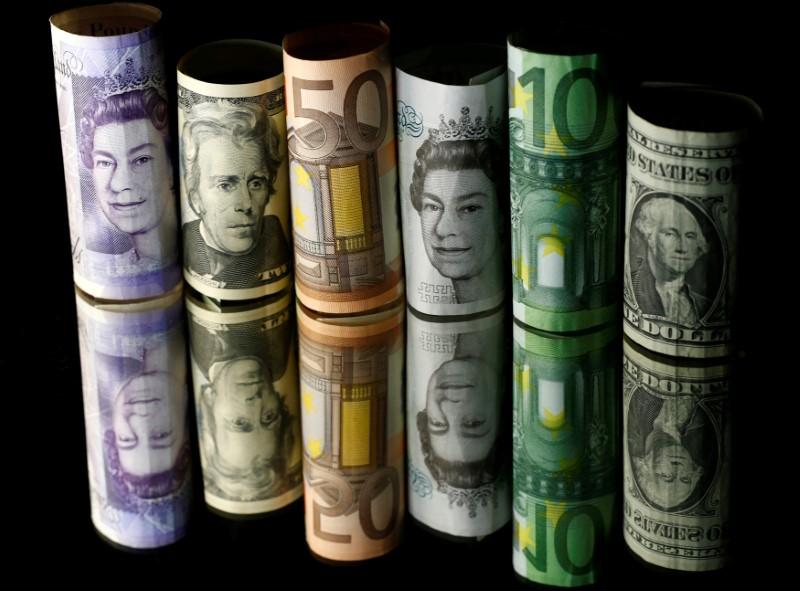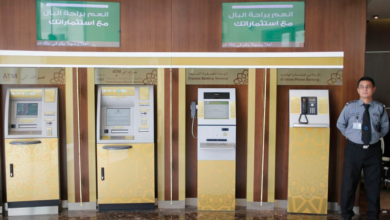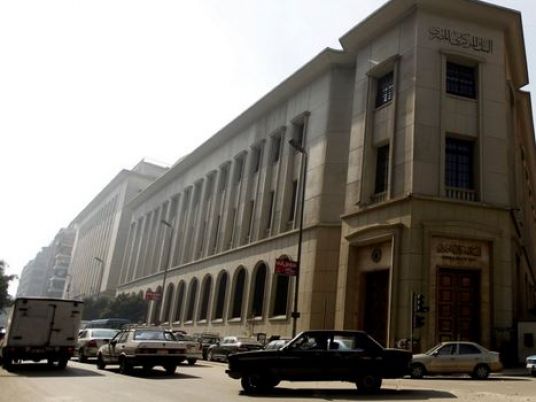Prime Minister Hashem Qandil announced last month his government’s intention to issue one or two rounds of sukuk, a type of Islamic financial product, before the end of 2012.
He offered few particulars, but the reaction of the business community has been largely positive, and the Egyptian government is now occupied with fleshing out the details of the proposal.
Qandil’s Freedom and Justice Party (FJP) is meeting this week with representatives of the financial industry and other political parties to discuss the establishment of rules governing the issuance of sukuk.
The idea to expand Islamic finance in Egypt became popular soon after the January 25 revolution, but it was delayed by the paralysis of political institutions and President Morsi’s prioritization of other issues during the first 100 days of his administration.
With the swelling of the government budget deficit and the continued deterioration of economic conditions across the country, the sukuk issuance is one key instrument in the FJP’s recovery toolbox.
“Sukuk is part of the strategy to increase the amount of Islamic instruments from 5 percent to 55 percent by the end of the president’s first term,” Abdullah Shehatta, an economic advisor to the president, told the Egypt Independent in a telephone interview.
Meanwhile, the government’s detractors claim that Islamic finance is not a viable economic strategy and is meant merely to burnish the party’s religious credentials in the run-up to a new round of parliamentary elections this fall.
Spreading risk, sharing profit
The Islamic financial sector stipulates compliance with the principles of Sharia, the Islamic law derived from the Quran and the Sunna. Its fundamental tenant is a prohibition on interest-based lending, the activity that lies at the heart of the traditional banking system used in most countries.
Instead, Islamic banks offer products that seek to spread risk and profit more equitably between the creditor and the debtor.
“Sharing the gain without sharing the risks is regarded as inefficient and unstable,” wrote Tarek El-Ghamrawy, an economist at the Egyptian Center for Economic Studies, in a recent working paper. “Inefficient because it affects the system of incentives negatively, and unstable because there is always the threat of bank runs in case of losses.”
The Islamic banking system offers several alternatives to traditional interest-based products.
Sukuk, though commonly cited as the Islamic equivalent of bonds, refers in fact to the certificates of ownership for a broad range of financial products (e.g., mudaraba, mushtaraka, murabaha) by which the financier becomes a partner in a debt, an asset or an enterprise. Profits are shared by the financier and the borrower, while losses are either incurred entirely by the financer or shared by both according to the details of the agreement.
Additional prohibitions on investments in goods or services prohibited by Sharia, such as alcohol, gambling and pornography, are replicated by the investment strategy known in traditional finance as socially responsible investing.
Furthermore, Islamic banks are forbidden from investing in financial instruments that do not comply with Sharia,such as conventional bonds and derivatives.
Islamic financial products and the Islamic banks that market them are hardly new to Egypt.
The sector first emerged in 1963 and gained momentum when Dubai Islamic Bank was established in 1975. By the mid-to late-1980s, the Islamic financial industry in Egypt grew, but
Islamic banks never managed to compete with traditional financial institutions. Multiple sources confirm that the share of Islamic institutions in the Egyptian banking system has rarely exceeded four percent.
Some attribute that scarcity to a lack of investor interest, but the more widely cited cause is the previous regime’s ideologically-motivated neglect of the Islamic financial industry as a whole.
The intention of the FJP-led government, Shehata insisted, is to “remove the old constraints on operations of the Islamic banking system, to make the legal environment friendlier.”
Tapping into the Islamic option
From the FJP’s point of view, strengthening the Islamic financial sector in Egypt has several potential benefits, chief among them funding government spending.
Among the current administration’s most pressing financial concerns is paying the country’s bills. Finance Minister Momtaz al-Saeed announced last week that the budget deficit has reached LE170 billion (US$28 billion), which constitutes approximately 12.5 percent of Egypt’s 2011 GDP.
The Qandil government has been in negotiations with the IMF since early summer for a $4.8 billion loan. In addition, Egypt has been promised a mixture of loans and central bank deposits from Qatar, Saudi Arabia and the United States that total another $4 billion. Twenty-five percent of government spending currently goes to paying interest on outstanding debts.
Financing government operations through borrowing is unsustainable.
In an interview with the Egypt Independent, Magdy Kandil, former executive director of the Egyptian Center for Economic Studies, said that instability after the revolution led to a precipitous drop in the demand for government bonds, she added, pushing the interest rate above 16 percent.
The FJP hopes that Islamic banking instruments like sukuk will provide a new, cheaper source of liquidity for financing government operations. It seeks to access underutilized lines of credit by attracting investors who prefer Sharia-compliant products and to lower its borrowing cost by exploiting the Islamic lending model.
“There is liquidity outside the traditional banking system,” said Shehatta. “According to our knowledge, there are billions of dollars from abroad and inside Egypt that would like an Islamic alternative.”
The greatest interest in Egyptian sukuk, at least initially, is expected to come from institutional investors in the Gulf where Islamic banks and financial products have been prevalent for years. Already this week, Kuwait Finance House is reportedly in talks with the Egyptian government over a sovereign sukuk issuance.
By their nature, Islamic financial products could lower the cost of borrowing for the government.
“The government does not commit to a given interest rate, but mobilizes funds to be invested in specific projects and the return will be determined based on performance,” said Kandil.
Making room for private borrowing
The potential benefits of sovereign sukuk issuances are not limited to the state budget.
The government’s excessive borrowing in the past year and a half has led to a crowding out effect in the private sector. According to El-Ghamrawy’s paper, the private credit-to-GDP ratio in Egypt reached a low of 36.1 percent in 2009 due to an increase in direct lending to the government.
Banks have preferred to loan to the government at exorbitant interest rates and let the rest of their deposits lay dormant, leading private enterprises to rely nearly exclusively on internal funding for financing investments.
This phenomenon comes at a particularly high cost to small- and medium-sized enterprises (SMEs), which account for a majority of Egypt’s output and employment according to CAPMAS.
The new source of funding represented by sukuk should lower the government’s demand for loans from traditional banks, encouraging them to lend to smaller, private enterprises and to lower their interest rates.
Furthermore, Islamic financial products present their own particular advantages to SMEs.
El-Ghamrawy’s analysis of the MENA region between 2007 and 2009 indicates a significantly higher loan-to customer deposit ratio in Islamic banks than in conventional ones, which would partly counteract the traditional banking system’s penchant for government loans.
Teaching how to save
FJP members and other proponents say Islamic banking could also improve the economy by encouraging greater savings by ordinary Egyptians.
In a televised interview last month, Mohamed Gouda, a member of the FJP’s economic committee, said, “The main problem is that the Egyptian people don’t know how to save. The savings rate doesn’t exceed 14percent.”
He proceeded to present an FJP program called the Karama Deposit Initiative, which seeks to attract saving deposits from Egyptians—primarily those living abroad—to increase the availability of investment capital from non-foreign sources. Gouda suggested that traditional and Islamic banking options would be available to savers.
The Karama Deposit Initiative has not received broad press coverage, and Shehatta, the presidential advisor, distanced the FJP from the program while questioning its effectiveness.
Yet he emphasized the administration’s goal of providing an Islamic alterative to Egyptians who do not want to deposit their money in the traditional banking system.
Kandil endorsed this view, suggesting that “50 to 60 percent of savers in Egypt would love an instrument they would feel comfortable with as far as growing their savings and not being perceived as interfering with the laws of Islam when it comes to usury.”
Identity economics
But not all see the sukuk as a strong solution. Amr Adly, head of the Economic and Social Justice Unit at the Egyptian Institute for Personal Rights told Egypt Independent that though Egypt cannot depend on traditional sources of capital like Europe and the United States because of the global financial crisis, sukuk and other Islamic financial products are not necessarily the best answer.
“I don’t believe introducing sukuk will be the crucial element in getting Saudi Arabia or Kuwaiti…into the economy,” he said, “because you already have many Islamic products and Islamic banks operating in Egypt since the 1980s.”
Adly acknowledged that new financial products could attract more investment in the coming years, but in the short term, he said, Egypt has no option but to continue borrowing.
He rejected speculation that the FJP would take further steps to reshape Egypt’s economy in a more religious mold, but he described the sukuk issuance as a manifestation of “identity politics serving the propagandistic ends of Islamizing the economy.”
Furthermore, Adly indicated that the sukuk issuance caters to the FJP’s “neoliberal agenda.” He suggested that public private partnerships (PPPs), of which there is an equivalent in Islamic finance called musharakah, will likely fund infrastructure projects in order to ease government spending.
He warned of problems associated with PPPs.
“We may end up with many projects that are not completed,” he said, citing short term shocks that led to failures in Egypt under Mubarak as well as in the Gulf.
“They are flirting with the Dubai model that depended on sukuk,” he added. “It is quite risky.”




